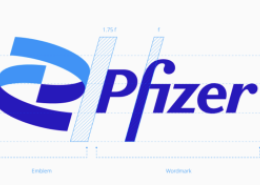Lipitor 80 mg Provided Sustained Risk Reduction of Cardiovascular Events in Patients with Heart Disease During the Five-Year TNT Trial
(BUSINESS WIRE)--Pfizer announced that in patients with established heart disease, Lipitor® (atorvastatin calcium) 80 mg not only significantly reduced the relative risk of suffering a first cardiovascular event by 19 percent compared to Lipitor 10 mg but also provided a sustained reduction in the risk of a subsequent second, third, fourth, and fifth cardiovascular event, according to a subanalysis of the five-year Treating to New Targets (TNT) study.
This subanalysis, designed and completed following the closure of the TNT study, was presented at the 2008 European Society of Cardiology Congress in Munich, Germany.
“The original TNT trial, as with most cardiovascular outcome trials, only evaluated the time to a patient’s first cardiovascular event and therefore may not have fully accounted for the total clinical benefits achieved by intensive LDL-cholesterol lowering,” said Dr. John LaRosa, president and professor of medicine at the State University of New York Downstate Medical Center in Brooklyn, New York, and a member of the TNT steering committee. “This subanalysis is important because patients with heart disease often go on to suffer more than one cardiovascular event.”
Any cardiovascular event, which was chosen as the endpoint for this post-hoc subanalysis, was defined as death from heart disease, non-fatal heart attack, resuscitated cardiac arrest, certain types of heart surgery, procedure-related heart attack, chest pain, fatal or non-fatal stroke, peripheral arterial disease or hospitalization due to chronic heart failure.
“These findings suggest that patients can benefit from long-term therapy with high dose Lipitor,” continued Dr. LaRosa.
In this subanalysis of the TNT study, evaluating patients with established heart disease (n=10,001), compared to Lipitor 10 mg, Lipitor 80 mg demonstrated:
- 19 percent significant relative risk reduction in a first cardiovascular event (n=3,082);
- 21 percent significant relative risk reduction in a subsequent second cardiovascular event (n=1,516);
- 24 percent significant relative risk reduction in a subsequent third cardiovascular event (n=698);
- 28 percent significant relative risk reduction in a subsequent fourth cardiovascular event (n=345);
- 29 percent significant relative risk reduction in a subsequent fifth cardiovascular event (n=197).
“Although the original TNT study was not designed to look at subsequent cardiovascular events, these results are compelling and suggestive of sustained benefit with Lipitor 80 mg compared with Lipitor 10 mg in patients with heart disease,” said Dr. Rochelle Chaiken, vice president of Pfizer’s global cardiovascular and metabolic medical team.
About the TNT Study
The TNT study was an investigator-led trial coordinated by an independent steering committee and funded by Pfizer. The study enrolled 10,001 men and women with coronary heart disease aged 35 years to 75 years in 14 countries and followed them for an average of five years. Primary study results were published in TheNew England Journal of Medicine in 2005.
The primary endpoint of the original TNT study was the occurrence of a first major cardiovascular event, defined as death from heart disease, non-fatal heart attacks, resuscitated cardiac arrest, or fatal or non-fatal strokes.
In contrast, the endpoint for this subanalysis was any cardiovascular event, defined as death from heart disease, non-fatal heart attack, resuscitated cardiac arrest, certain types of heart surgery, procedure-related heart attack, chest pain, fatal or non-fatal stroke, peripheral arterial disease or hospitalization due to chronic heart failure.
Lipitor 80 mg is not a starting dose. Lipitor is not approved in all countries to reduce the risk of cardiovascular events in patients with existing heart disease.
Important U.S. Prescribing Information
Lipitor is a prescription medication. It is used in patients with multiple risk factors for heart disease such as family history, high blood pressure, age, low HDL (“good” cholesterol) or smoking to reduce the risk of a heart attack and stroke, certain kinds of heart surgery and chest pain.
Lipitor is also used in patients with type 2 diabetes and at least one other risk factor for heart disease such as high blood pressure, smoking or complications of diabetes, including eye disease and protein in urine, to reduce the risk of heart attack and stroke.
Lipitor is used in patients with existing coronary heart disease to reduce the risk of heart attack, stroke, certain kinds of heart surgery, hospitalization for heart failure, and chest pain.
When diet and exercise alone are not enough, Lipitor is used along with a low-fat diet and exercise to lower cholesterol.
Lipitor is not for everyone. It is not for those with liver problems. And it is not for women who are nursing, pregnant or may become pregnant.
Patients taking Lipitor should tell their doctors if they feel any new muscle pain or weakness. This could be a sign of rare but serious muscle side effects. Patients should tell their doctors about all medications they take. This may help avoid serious drug interactions. Doctors should do blood tests to check liver function before and during treatment and may adjust the dose. The most common side effects are gas, constipation, stomach pain and heartburn. They tend to be mild and often go away.
For additional product information, visit www.Lipitor.com.
Oliver Stohlmann, +43-664-3350485
or
Vanessa Aristide, 212-733-3784
or
Rebecca Hamm, 212-733-8811








